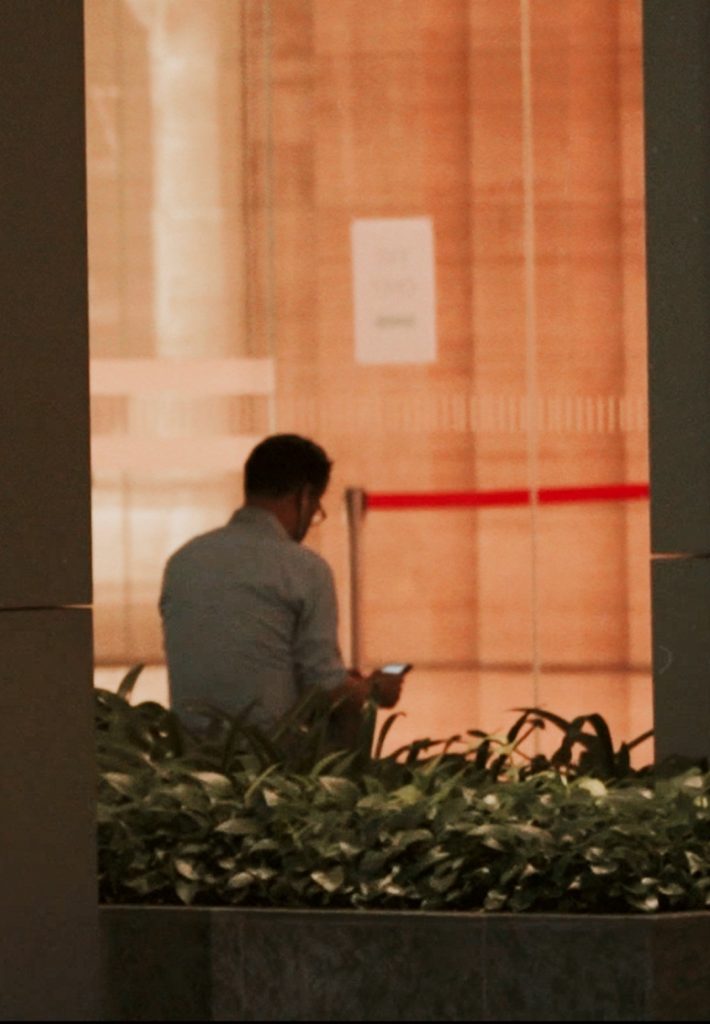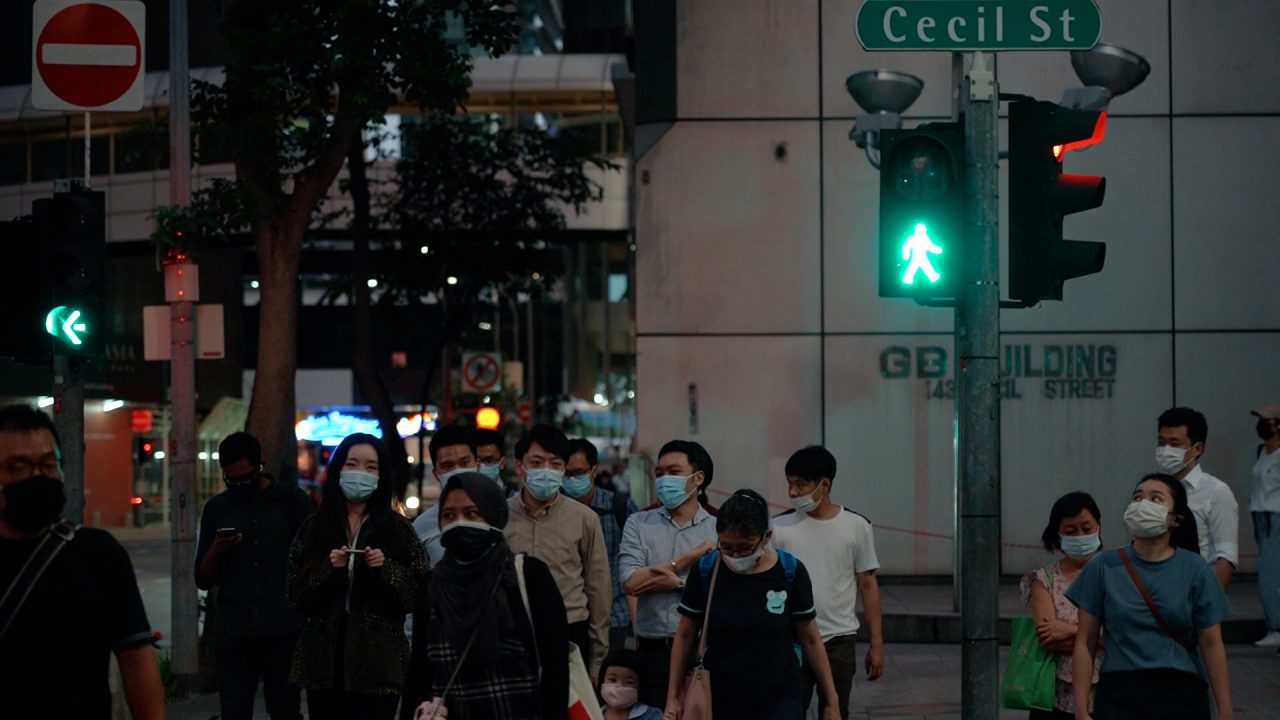All photography used in this article was taken from the trailer of RICE’s upcoming video series WORKISM. All images were shot by Feline Lim and Zachary Tang for RICE Media.
A few years ago, a Singaporean friend of mine, Patricia, quit her job in finance and moved to the Taiwanese countryside to become a farmer. With no prior experience, she leased a large tract of land in eastern Taiwan for a few hundred dollars a year, and began to grow and sell organic rice and vegetables.
One day, while she was working in her field, an old Taiwanese farmer walked up to her and asked,
“Why are you working such a huge tract of land by yourself?”
“Because I need the money,” said Patricia. She’d worked out on a spreadsheet how much crop her land needed to generate in order to sustain her modest lifestyle.
The old farmer frowned, “But it’s obvious that you’re struggling to manage all of it by yourself. Why not work just a quarter of this land? You’d be surprised by the results.”
“So what happened afterwards?” I asked when I met up with Patricia while visiting family last month.
“So I followed his advice,” said Patricia.
“And my yields shot up. I ended up making more than I ever did before.”
Why We Burn Out
This anecdote perfectly illustrates what I’ve tried to tell my Singaporean friends ever since I moved here: that the secret to job satisfaction is to care less about the outcomes. This starts at the individual level, with an understanding of our physical and emotional limitations.

I compare this to the work of an oncologist or heart surgeon. Become too emotionally invested in every patient, and you’ll burn out quickly. This detachment from binary outcomes like ‘failure’ and ‘success’ actually makes you better at your job, and more likely to sustain your efforts for the long term. It is also the necessary path to competence, and is a useful mindset that can be applied to almost any other profession and workplace.
This means managing our own expectations of:
1. how much work we can handle, and
2. to what extent we should let a job define who we are
In order to accomplish this, Singaporeans need to become more comfortable at actively managing the expectations of others: namely our colleagues, employers, and clients. This is an acquired skill, and more art than science.
What it does require is some level of assertiveness, communication skills, and propensity for disagreement/conflict, traits that are not often found in the average Singaporean.
Take the recent news about the end of WFH as the default option. The debate it sparked led to people siding with either the employees or employers. Very few talked about how employers and employees might want to talk to each other to figure out the best arrangement.
Even at quote-unquote ‘progressive’ workplaces like RICE, I’ve noticed that our company-wide town hall meetings are mostly one-way affairs, where the editors do the majority of the talking and the rest of the company just listens in silence. Anecdotally, this seems to be true in other open and more Westernised work environments in Singapore.

“After a while, you sort of come to expect that silence,” said one expat executive I spoke to who manages a team of 40+ employees in Singapore.
“It has nothing to do with ability. It’s cultural. Singaporeans are still more comfortable being told what to do, what to expect, and they fear ‘rocking the boat’ with their own opinions.”
It seems that regardless of the work policies in place, Singaporeans still have a tendency to wait for orders, keep their views to themselves, and over-promise on their work, until they inevitably burn out from the weight of their (mismanaged) expectations.
This inability (or unwillingness) to openly advocate for themselves and set clear boundaries is the primary cause of burnout in the Singaporean workplace.

The Limitations of the Singaporean Work Mindset
Cultivating a more open and flexible mindset is easier said than done, since the majority of a Singaporean’s education has been built upon fixed outcomes: PSLE, O-Levels, A-levels. Even after they enter the working world, I get the sense that many people are still planning backwards based on a certain set of life milestones.
For example, if a Singaporean wanted to have kids before 35, they’d need to BTO by 30, put in a down-payment for a wedding by 29, propose/be proposed to by 28, and be in a committed long term relationship by 27.
Considering that most Singaporean men graduate at 25, this plan leaves almost no room for error. A single misstep and the entire timeline collapses. The achievement of this ‘plan’ is tied to their self-esteem, identity, as well as peer and parental pressures, hemming them in on all sides.
This is the top-down reality of the Singaporean system. But it’s a system from which, judging by their actions, many Singaporeans seemingly have no desire to escape.

Even in progressive companies with more open company cultures, it’s often a chore to find Singaporean candidates who will advocate for themselves.
“You can spot the ideal candidate almost immediately when they arrive for an interview,” said another hiring manager for a SaaS tech start-up, who manages a large team in Singapore. “They usually have less of a filter and are unafraid to express their true opinions. It’s easy for them to stand out from your average Singaporean, who’s just trying to figure out what you want them to say.”
Admittedly, part of the blame for this lies with the Singaporean education system and its emphasis on rote learning and finding the ‘right’ answer. But how long are Singaporeans going to use their PSLE scores and first-world education as a crutch in their lives as working adults—especially when millions outside of Singapore do not even have access to the same privileges?
While toxic workplaces do exist, there are also limits to what employers and policymakers can do to change an entire culture’s relationship to work.

Burnout: A First World Problem
In recent months, a lot of ink has been spilled on work culture and burnout, most notably by the left-leaning media like The Atlantic and The New York Times, which caters almost exclusively to the educated upper-middle class (or those aspiring to gain admission).
Reading these articles, I recall the words of George Orwell, who once said that “all left-wing parties in highly industrialized countries are at bottom a sham, because they make it their business to fight against something which they do not really wish to destroy.”
As a result, most articles on work culture are high on hand-wringing (‘it’s education/capitalism/government policies’), but short on actionable solutions (i.e. what can I do about that today?).
It also doesn’t address the question of who is ultimately responsible for our happiness and satisfaction: policymakers, employers or ourselves.
The answer, for me at least, is clear: if the Singaporean problem is a society with too many rules and an overly prescriptive definition of success, why would the most logical solution be to wait around for the government or our employers to hand us a new set of rules?
Isn’t this just reinforcing the top-down culture that created the problem in the first place?
In other words, it’s disingenuous to complain about ‘nothing changing,’ if we aren’t personally willing to risk anything to change—whether that’s speaking up to improve the existing system or taking the plunge to leave a toxic employer to pursue a different career path.
No one else can make that decision for us.
Changing Singapore’s relationship with work will be a long and arduous process, where every interaction in the workplace is an exercise in negotiation and compromise, and success is not a finish line, but a daily effort to make things better.







